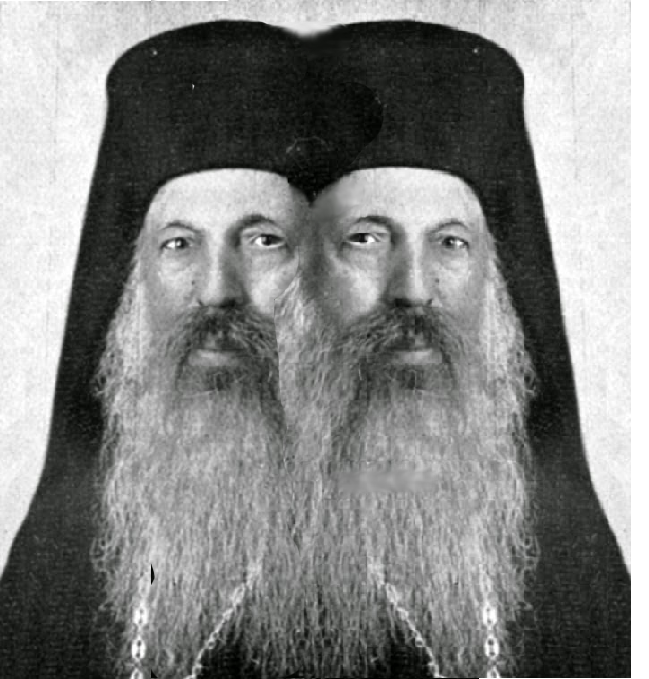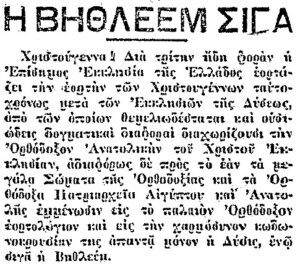One of the Many Self-Contradictions of the Ill-Starred “Archbishop” of Athens Chrysostom Papadopoulos

Calling a synod meeting to discuss the change of the Church calendar, “Archbishop” Chrysostom (Papadopoulos) (Archbishop of Athens from February 23, 1923, to October 22, 1938) answered the hierarchs objecting to the change of the calendar by stating,
“The anathema against the New Calendar by all of the patriarchs of Orthodoxy is a fabrication of monks of the Holy Mountain (Athos). The NEW CALENDAR WAS NEVER CONDEMNED BY ORTHODOXY, nor was the correction of the Julian Calendar ever prohibited and the great PANORTHODOX Synod of 1593 WITHOUT IN THE LEAST CONDEMNING THE NEW CALENDAR, simply repeated the relevant Canon of the ancient Synods of the Church concerning unchangeable celebration of Holy Pascha.”
It would seem that “Archbishop” Chrysostom (who would often refute himself) forgot that as an Archimandrite he wrote in his own book Ecclesiastical History that,
“Due to this conflict, Patriarch Sophronius IV of Jerusalem who had departed from Jerusalem in 1584 on a alms-collecting journey, made his way to Constantinople in that year to take part in the conference that was arranged in that city under Patriarch Jeremiah II the Great (Tranos) in order to RENOUNCE THE GREGORIAN CALENDAR by which the Latin Church was planning to BEGUILE the Orthodox.” (see Ecclesiastical History by Chrysostom Papadopoulos page 472)
It seems that “Archbishop” Chrysostom himself would be one of those who was beguiled! That same then Archimandrite and later Archbishop Chrysostom Papadopoulos would write a treatise on the Calendar subject that was published in the “Ecclesiastical Herald” (Ἐκκλησιαστικὸς Κήρυξ) in 1918. Commenting in this treatise on the epistle that Patriarch Jeremiah II the Great (Tranos) sent to Nicolo DaPonte the Doge of Venice, Chrysostom Papadopoulos states the following:
“This epistle of Patriarch Jeremiah characterizes as excellent the position which the Orthodox Church immediately took concerning the Gregorian modification of the calendar. This (alternation) is considered by Her (the Orthodox Church) as one of many innovations of Old Rome; a Worldwide scandal and a peremptory encroachment of ecclesiastical traditions.”
“Ecclesiastical Herald” (Ἐκκλησιαστικὸς Κήρυξ), issue 143, year 1918
And Chrysostom Papadopoulos continues in that same disquisition saying,
The alteration of the Calendar isn’t simply an astronomical matter, but an ecclesiastical one because it interconnects with PASCHA. Therefore, the Pope has no right to modify the Calendar thinking himself higher than the Ecumenical Councils. Therefore the Orthodox Church does not position Herself favorably towards the change made in the calendar.
“Ecclesiastical Herald” (Ἐκκλησιαστικὸς Κήρυξ), issue 143, year 1918






